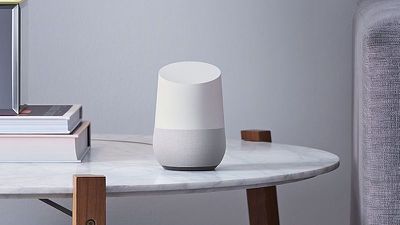Google Home received a major update to its voice recognition system on Thursday that lets owners set up the smart speaker to recognize multiple account holders.
The software update means that up to six people can connect their Google account to one speaker and Google Assistant will be able to distinguish users by the sound of their voice. Amazon is said to be working on a similar feature for its Echo range of devices.

The feature works by listening to how individual users say the phrases "Ok Google" and "Hey Google", and then runs the samples through a neural network that can detect certain voice characteristics and match vocal analyses in a matter of milliseconds. Google says the process happens "only on your device" and the samples aren't sent anywhere else.
ArsTechnica asked Google how confident it was in the speaker's ability to distinguish users only by voice. Google responded by explaining that the feature was still being refined. "We don't recommend that users rely upon voice identification as a security feature," said the company.
To enable multi-user support, owners need the latest version of the Google Home app. If the app doesn't highlight the new feature, click the icon in the top right to see all connected devices. After selecting the Google Home speaker from the list, tap "Link your account" and the app will run through the process that teaches Google Assistant to recognize your voice.
The feature began rolling out in the U.S. yesterday, and Google says it will expand to the U.K. "in the coming months".






















Top Rated Comments
I already suggested a multiple user feature for Siri (and in the hope it would also be included on a future home assistant device) via Apple's feedback form.
This means that whoever upgrades to the Vesper manufactured piezo MEMS microphones is going to have a major advantage in user recognition (and therefore functionality/reliability).
I'll never understand why these companies, who know damn well that they don't have the hardware in place to do it right, have instead put out a few million units of a device that won't be replaced often just to get this type of device out first. Why? Why not make it great and have a reason for existing instead of rushing into this half baked market just to get there first?
The other difference is over the phone, the acoustics are far better. I've listened to Alexa captures in the app from across the room and they're definitely not phone quality.